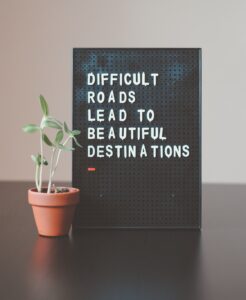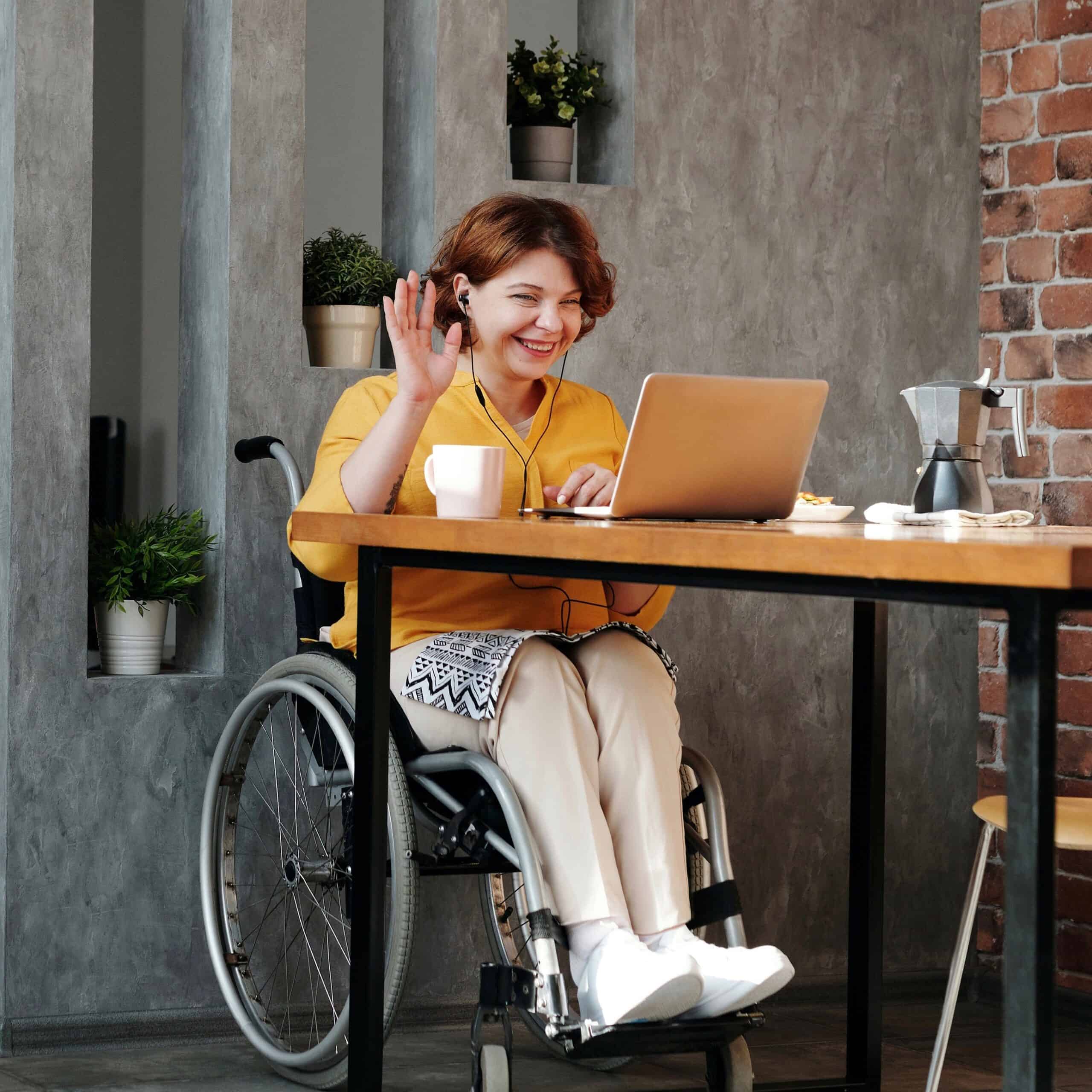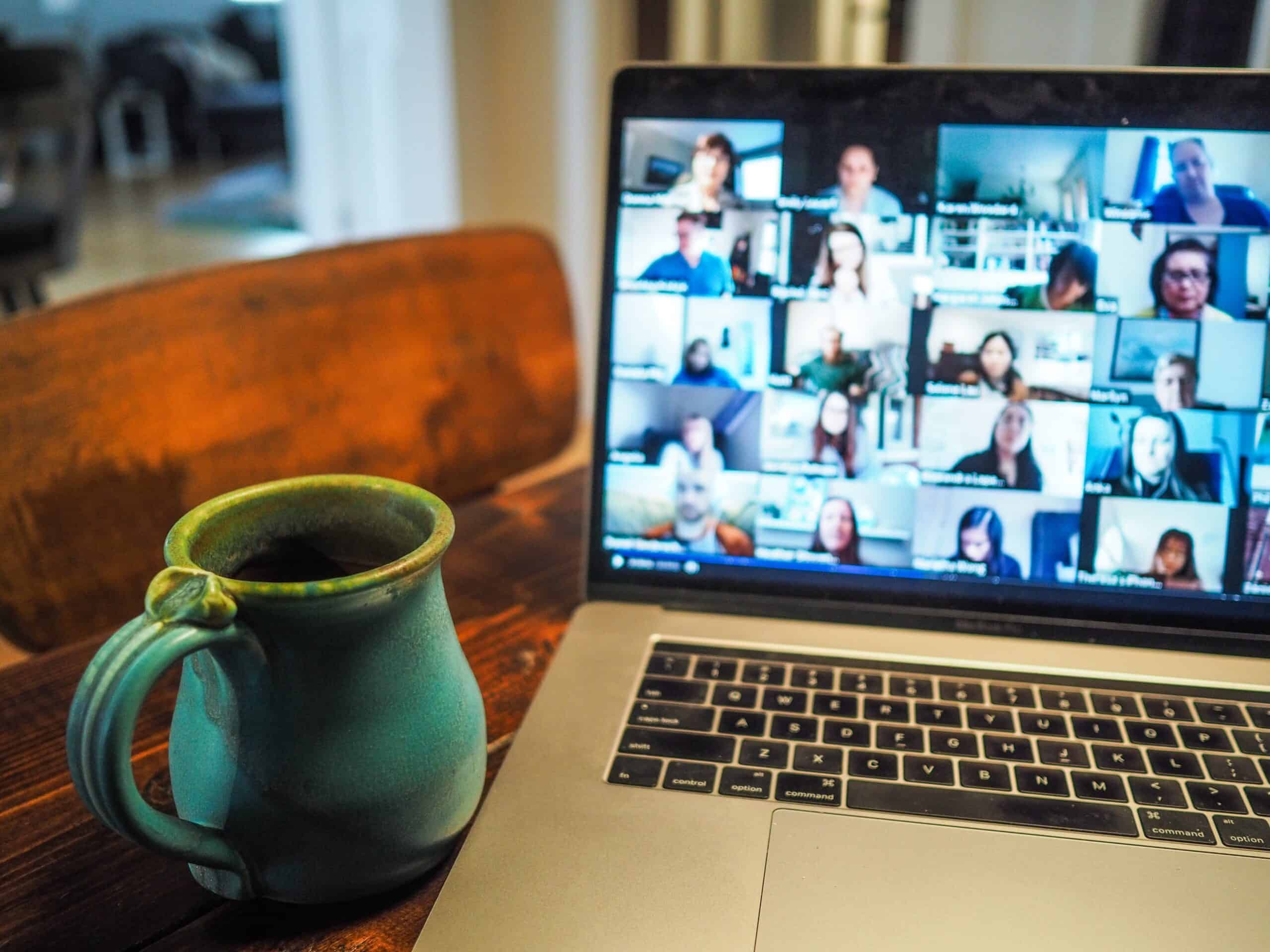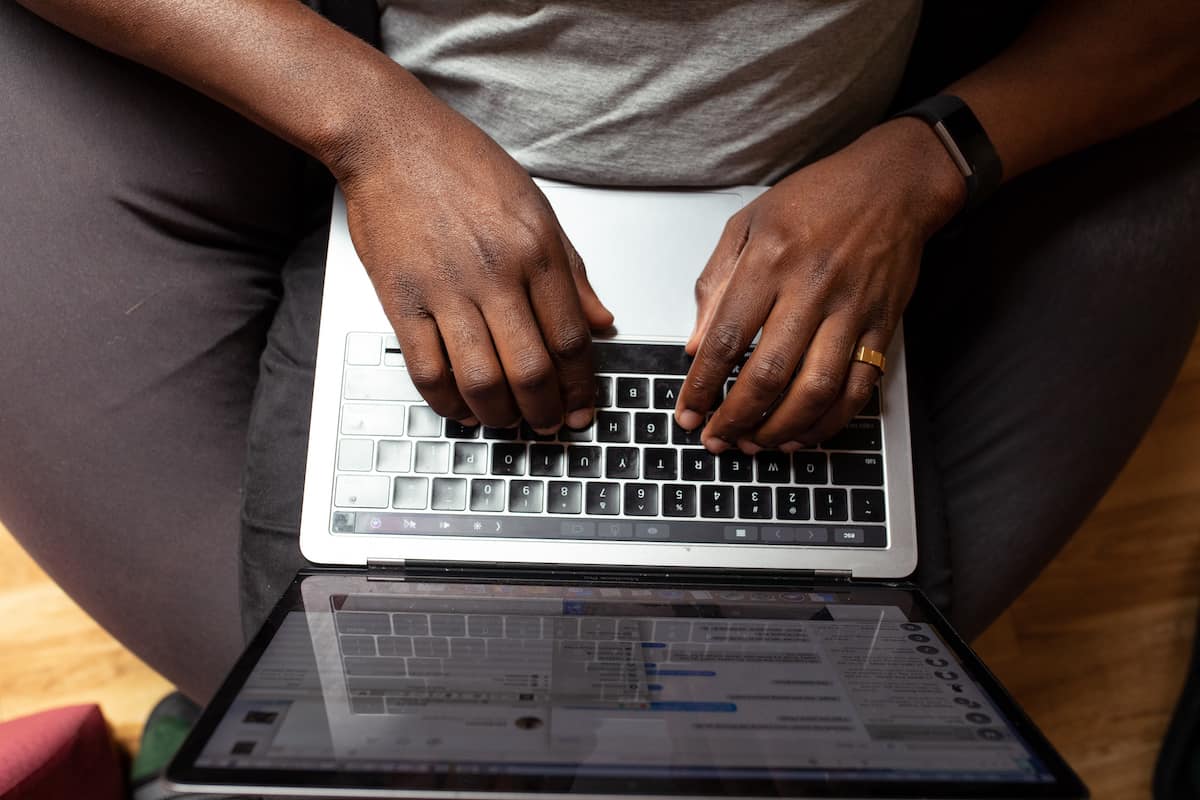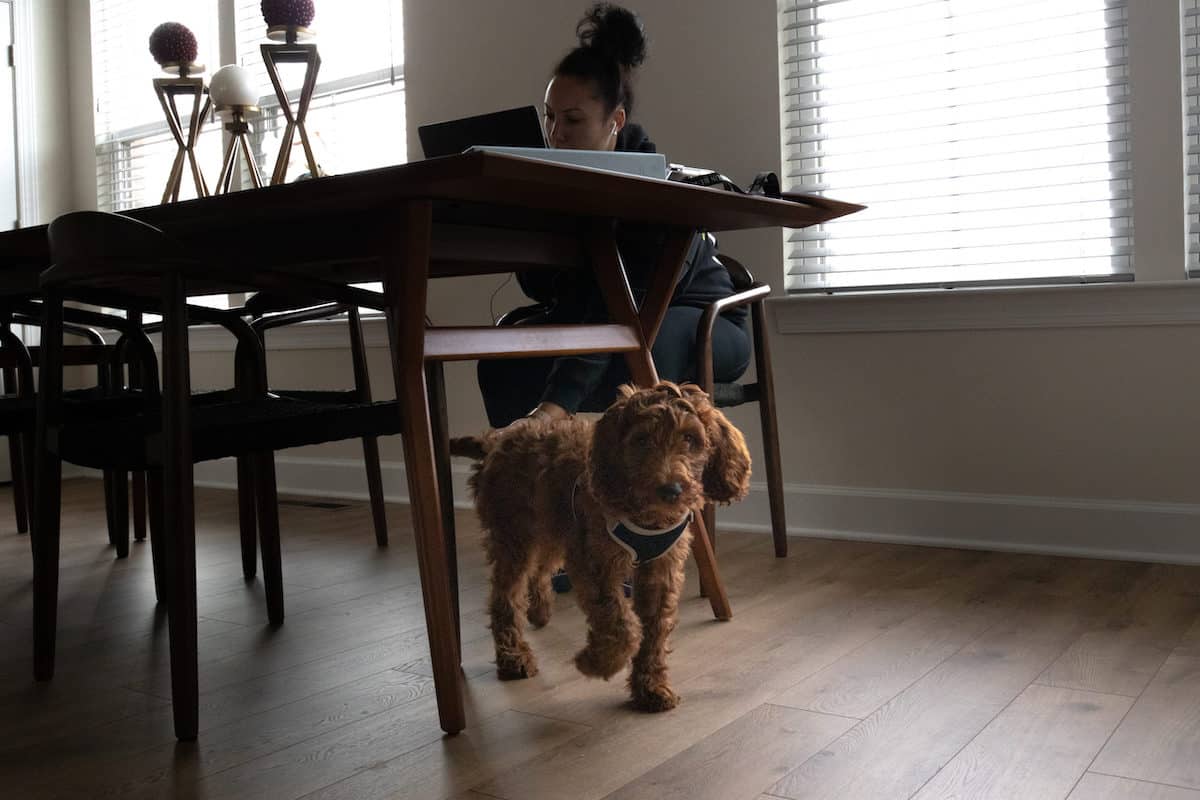This year has been especially challenging for everyone – and especially those in recovery. Our safe places and communities may only exist virtually, and we miss the human connection that is so vital for our recovery and wellness. We know we can’t do it alone.
So how do we navigate our way and make connections in a virtual world? What’s working for others during this time? Here are some “Lessons Learned” from people in recovery, family members, and recovery allies for 2020.
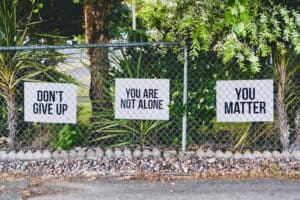
Create Connections in a Virtual World
- “With the hustle and bustle of everyday life, connection can get away from you so you have to be intentional. I highly recommend developing “accountability” partners. We often say that we are going to connect but we sometimes don’t put our words into practice. Creating calendars or alarms that remind you to connect are imperative, especially during the pandemic. Pick a date and time every week and put it on your calendar, or set an alarm on your phone and have your accountability partner do the same. It’s much easier that way!”
- “JUST TAKE A LEAP OF FAITH AND CALL SOMEONE! Get numbers from others during zoom meetings, in person meetings, attend alumni events hosted by the treatment center you attended. I started collecting numbers of people who were in recovery in a little blue book. When I would feel down, or would need a ride, I would take a deep breath and call someone. I HAD EVERYTHING TO LOSE if I did not do something different. Another thing I changed was people, places and things. I surrounded myself with people who were in recovery. I no longer went to bars or places that triggered my addiction. I no longer held on to the paraphernalia I used to get high with.“
- “We all, in active addiction or not, have really effective ways that we conceal ourselves to the world around us due to various fears or insecurities. Connection requires the opposite of that. So, when we say “the opposite of addiction is connection,” that’s exactly what we’re talking about. If an addiction is an “escape mechanism” gone wrong, then we have to mindfully and purposefully do the opposite. That can mean a lot of things, but a simple choice that I think helps is finding a hobby or group that is centered on laughter, play, or teamwork. Things like trying something for the first time, joining a gym with structured classes, or finding a workplace where collaboration is key.”
“With the hustle and bustle of everyday life, connection can get away from you so you have to be intentional. I highly recommend developing “accountability” partners.I.
New to Recovery?
- “Being isolated is often a dangerous place for people in recovery, especially for those newer to recovery. Creating and maintaining connection is a challenge right now, but it is still just as critical. So please do whatever you can to make these connections, virtually or otherwise, and don’t be afraid to be vulnerable. There are many others going through the same challenges, and you can get through them together.”
- “Push yourself to do uncomfortable things. In early recovery, I really had to push myself to have conversations, attend events, and show up when I didn’t want to. Yes, it was uncomfortable and yes, I felt awkward, like I didn’t belong but the more I pushed myself, the easier it was. Additionally, share where you are whether it’s good or not so good. Chances are, people have experienced something similar. It’s difficult to exhibit vulnerability but vulnerability doesn’t constitute weakness. As a matter of fact, being vulnerable is a strength. The more you share, the easier it is to get the help and support you need.”
- “Be kind to yourself. Sometimes that voice in our head isn’t the kindest person in the room – but that voice isn’t you, and that voice doesn’t have to steer your choices.”
- “I know it’s difficult during the pandemic, but I have seen, firsthand, people recovering during this pandemic. They are reaching out, sharing in meetings, attending intensive outpatient programs, getting sponsors, going to support groups, getting involved with their church communities. A big part of recovery is helping others. Helping others gives us a break of focusing on ourselves and our problems and help someone else. During the pandemic, there are tons of people who need help. Offer to cut someone’s grass, make them a meal, walk their dogs, pick up groceries for people, help them learn how to use Zoom. It has been said, “Chase your recovery like you chased the drugs.”
Creating and maintaining connection is a challenge right now, but it is still just as critical. So please do whatever you can to make these connections, virtually or otherwise, and don’t be afraid to be vulnerable.K.
Recovery Means…
- “Today, recovery has a whole new meaning for me. When I was new in recovery, it was just about not using substances, one day at a time. It was about learning how to brush my teeth, make my bed, go to work on time. It was about learning how to reach out to a stranger and ask for help and build connections. Today, it’s not so much about the drugs anymore. Today it’s about maintaining all the things I learned along the way, such as respecting others, cultivating relationships, doing the next right thing, for the next right reason, even when no one is watching. Today, it’s not so much about me, it’s about others. Helping others on their pathway to recovery, giving back what was so freely given to me.”
- “Recovery is a constant evolution for me. When I was in early recovery, I participated in “all things recovery”. However, as my recovery progressed I learned to participate in life in various ways, including navigating friendships, social events, and making community connections outside of recovery. Yet, no matter what, I always bring my recovery principles with me wherever I go. Those principles become “teachable moments” for those in my network who are not in recovery.”
- “I didn’t realize it then, but at a young age I was building this idea that recovery isn’t just about not using or not making the same decisions as before, it’s actually much deeper. When I was just entering college, one of my brothers had just been released from prison and I was still angry at him. One day I asked him, “Why did you do this to me?” I was referring to his heroin addiction, his drug-dealing and criminal history, and my own pain when my oldest brother disappeared for a decade. Sure, my question was a selfish one, but his response changed my life…..He said, “Imagine if you could feel all of the hugs and all of the love we wished we received as kids, and it came in a needle or a pill.” Since then, I see recovery as the process of creating lives that we don’t want (or need) to escape from. It’s easy to think and believe that addiction is about a particular substance, but the more I reconnect with my family and work with folks in recovery, the clearer it becomes that the substance or behavior is simply the tip of the iceberg. When I came to respect, honor, and trust that addiction may have initially been an effective escape from things I may never understand, I unlocked my own capacity to approach through love and empowerment. To me, and to the people I love, that has been a revolutionary thing.”
One day I asked him,“Why did you do this to me?” He said, “Imagine if you could feel all of the hugs and all of the love we wished we received as kids, and it came in a needle or a pill.D.
If “It’s Okay to Not be Okay,” What Helps When I’m Not Okay?
- “I look at it as a roller coaster ride. Sometimes you’re just not okay but this too shall pass. Anytime I’m not okay, I say to myself, “put your hands up and ride it out”. Of course, I also go through the motions of what I can do to alleviate some of the anxiety or stress. For me, if I’m overloaded, I tend to freeze and that isn’t good for me. So I find ways to take action by creating a list of “To Do’s” on a piece of paper. I then determine what I can knock out now, do it, and cross it off. For some reason it makes me feel like I’ve been productive. Then at the end of the night, I tell myself, “You’ve done all you can do today, tomorrow you will continue the journey”. I also find things that take my mind away from it all. For example, a bubble bath or playing with my puppies. Everyone is different and the tools in their recovery tool box are different. Explore your options and take note of what helps you disconnect from the stress of life.”
- “Find out what helps you self soothe. I used to look to all the outside things to help my insides feel better; validation from someone or something (i.e. shopping, romantic relationships, sex, drugs). Today, I learned what helps me on the inside. For some, that means taking a walk or a job. Others, it may be watching a funny movie. For me, I enjoy burning some sage and meditating with my crystals and diffusing essential oils. I also enjoy having some good laughs with people or driving around with the music blaring. TALKING TO SOMEONE is the most important thing to do when you’re not okay. Find someone you can trust and tell everything too, even all the thoughts you don’t want to share. “
- “I see helping connect recovery like how I support my kids in sports, like helping a basketball player shagging balls….. have you ever had a friend who needed to practice their dunk? Shoot free throws? Go shag balls for them. You don’t take your own shot, you stand under the basket, wait for the ball; sometimes they miss and sometimes they make it, your job is to catch the ball, send it back, say positive things… help them keep shooting, and basically, well, you just keep passing the ball. I have been passing the ball all my life, helping support those in need recover with unconditional positive regard. No shame, no judgement. I keep personal letters, poems, comments about recovery in a folder – whenever I feel down, marginalized, worth-less, or see something that upsets me… I get the folder out, read notes, memories, and triumphs out loud, and think about the literal lives I supported: knowing what value that has, what that really means… I close the folder and start helping pass the ball to someone else.”
I used to look to all the outside things to help my insides feel better; validation from someone or something. Today, I learned what helps me on the inside.A.
What Family and Friends Need to Understand About Recovery
- “This is a lifelong disease. It does not go away after a 7-day stay in a detox or a 28 day stay in treatment. Individuals with SUD will always have SUD. It is the disease of addiction. Some days are going to be worse than others. Some individuals may have a relapse of behaviors or substances. It is important for family and friends to also get help themselves. The disease of addiction is a family disease; therefore recovery needs to be a family process. There are many resources for families to get help with coping with their loved ones.”
- “We have to heal and understand ourselves. So many of us see ourselves as being a family or a person that has those people who have struggled in it. While that’s not false, the reality is that if we are connected when one person struggles we all are affected. So, when one person chooses to enter in recovery in a family or in a community, we have to make the loving choice to follow them, to create a family or a community in recovery. A family and community that is dedicated to love, connection, and healing. A quick aside, is that we have to purposefully and thoughtfully choose love rather than fear or judgment. Love requires action, and it requires the ability to help and see someone grow.”
- “As a Black woman, I want people to understand the role that not only gender but race plays when it comes to recovery and mental health issues. People need to understand the difference for Black people in recovery or dealing with mental health issues, we do not have the same experiences and it’s been harder for us to get the same compassion and understanding.”
- “I have learned that I can and I will set boundaries. I have to voice my recovery. For example, if I know that I am not on point with my recovery, I may not be able to attend an event that could put me in a bad space. My family and friends may or may not be able to understand that and that’s okay. My recovery is my responsibility. I also let my friends and family members know that they too are in recovery and that we all have our own recovery paths. My mental health and substance use disorders affected them just as much as it affected me and I have to meet them where they are. Open dialogue and trust building are key components because recovery is a lifelong process for everyone involved.”
- “Recovery is a process, not an event. There will be ups and downs, and sometimes relapse. Loved ones in recovery need support, but family members and friends need to practice self care as well. Healthy people will provide a strong support network.”
Loved ones in recovery need support, but family members and friends need to practice self care as well.K.
How Can Co-workers Support a Colleague in Recovery?
- “Treat us with respect and compassion in the workplace. It’s important to ask questions. For example, some prefer to disclose while others may not want to or if they do disclose information, that is for the recoveree to share so it’s okay to ask those questions. We are not fragile people. We are human beings just like everyone else. Perhaps, listening to our stories, providing safe spaces for us to have “not so good days” without assuming that something recovery related is wrong. Just because we are in recovery does not mean that we are not as capable as the next person. We have amazing talent outside of recovery so showcase that talent. We live a lifestyle of recovery but we are much more than just that.”
- “If you are trying to get people together for after-work events, find options that do not involve Happy Hours. There are so many ways to connect.”
- “Help them advocate for themselves. Additionally, if they confide in you about their recovery, and ask you not to repeat it, please respect that. Unfortunately, there is still a lot of stigma around addiction and recovery. That stigma can make it difficult to get jobs, hold jobs, get the respect they deserve at work. Don’t treat someone who is in recovery any different then you would treat someone else. We don’t want to be pitied or babied. We may not join you for Happy Hour, but we will work just as hard as everyone else while at work. Also, if you host company events, have them be alcohol free. Even for those not in recovery, alcohol at work parties can get awfully messy.”
- “Just offer and name the support that you are able and willing to offer, and then follow your co-worker in recovery’s lead — trust them, listen to them, check in with them if you notice they may be acting differently. It’s a challenging balance, but we have to communicate through action that we trust and value them enough to not worry too much, but also be loving enough to reach out if we notice that something may be off. The reality is, we should treat all of our coworkers this way.”
Treat us with respect and compassion in the workplace….We live a lifestyle of recovery but we are much more than just that.A.
The Misperception About Recovery I’d Like to Change:
- “That every time we are not “on point” that our recovery is in jeopardy. We are given the tools in recovery to work through life. Our recovery doesn’t define us, we define our recovery.”
- “That we will always relapse. Relapse MAY be a part of your story, but it doesn’t have to be. I have been in recovery for over six years and I have not relapsed. The stages of change wheel include relapse as one of the stages. I do not agree with this. We can and do recover.“
- “The belief that people suffering from SUD are making the choice to use, and choose the path they are on. I want them to understand it’s a disease – and addiction robs those who suffer from it from all choice.”
- “I’d like to change how we talk about each other. Do what you can to help change how people talk about addiction. Instead of addicts, junkies or users, let’s refer to “people in recovery, “ “people with addiction” or “people with substance use disorder”. When you can, teach others about person-first language. The more you use it, the more those around you will pick it up.”
Final Thoughts
- “There’s been so much uncertainty and fear this year that I often think about the time our family member went into treatment. I was in a constant state of anxiety, struggling to accept what I could not fix or change. We had no idea if things would get better, what would happen to them, how will this all turn out, will they survive? Will we survive as a family? While cleaning out yet another closet in April, I rediscovered an inspirational sign that got me through so much that year. It says, “When nothing is certain, everything is possible.” Though this pandemic may test us in ways we could not imagine, it’s a reminder that we will always face challenges and uncertainty in this life. As a family in recovery, we learned the tools we needed then — now we can choose how we react to a situation, how to cope, and to adapt to change. “
- “Our nation’s collective resilience is being tested during this crisis. And although it is a particularly challenging time for most, it demonstrates to me just how resilient individuals in recovery actually are – we rise up from the most difficult of days. “
